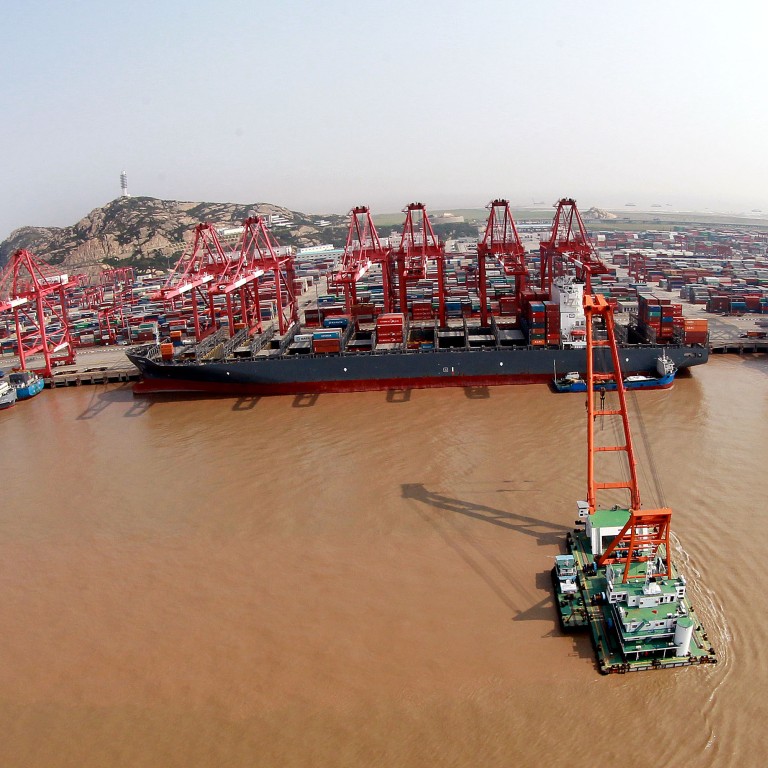
China's crude oil contracts seen boosting Shanghai Free Trade Zone
Moves to bolster futures market in line with goal to gain pricing power over major commodities
The authorities are looking to a "golden era" for the mainland commodity futures market, with the launch next year of crude oil contracts at the heart of Beijing's quest to gain pricing power over major commodities.
The currency crisis in Russia, which resulted partly from a plunge in oil prices, has added weight to calls for an early launch of the crude contracts as China seeks to exert clout in the industry in line with its status as the world's top net importer of oil.
Yang Maijun, the chairman of the Shanghai Futures Exchange, who outlined his vision for a commodity futures market at a forum this month, said the country's leadership had been fully aware of the need to create an active and internationalised trading platform for major commodities.
"It is a must for the country to give full play to the futures market to help achieve the goals of price discovery, risk control and reasonable allocation of resources," Yang said. "Corporate investors should be given greater freedom in participating in futures trading."
The debut of crude futures also will give a shot in the arm to Shanghai's free-trade zone, where the trading will be conducted, as criticism has mounted that the zone has notched up few achievements since it opened in September last year.
The China Securities Regulatory Commission took a significant step towards drastically liberalising the futures market after it gave the approval to crude oil futures earlier this month, following two years of preparations.
The CSRC began feasibility studies on the energy contract more than four years ago. While the regulator did not give a launch date, it is expected that the debut of the yuan-denominated contracts will come soon.
"The Russian crisis could prompt the regulators to start trading of China's own crude oil futures sooner rather than later as the government hopes China will gain pricing power," said Wang Feng, the chairman of Shanghai-based private equity group Yinshu Capital. "But China has to be prepared for volatility on its own oil futures market, which could have a big impact on the country's economy."
The launch of the crude contracts will mark the first time that Beijing lets foreign investors participate directly in mainland-listed futures, although they will be subject to a foreign-exchange quota, understood to be at least US$5 billion a day.
Beijing has taken a cautious stance on the liberalisation of the futures market, with chaotic trading and scandals having accompanied earlier stages of its development.
In 1993, it launched oil futures but halted trading of the product one-and-a-half years later due to volatile trading.
In February 1995, Shanghai Wanguo Securities massively exceeded a ceiling on its futures position and dragged down prices of a bond futures contract. This prompted the suspension of trading in bond futures and the government eventually had to cover Wanguo's losses.
Still, Beijing has shown a willingness to commit to the development of the futures market as the country's influence on the global economy grows.
Futures are an agreement to deliver or take delivery of a commodity or financial instrument at a certain date and price.
Crude oil futures, the most significant commodity contract, have been given priority by the CSRC in the past two years under directives from the State Council. The contracts will be traded on the Shanghai International Energy Exchange, a subsidiary of the Shanghai Futures Exchange, in the free-trade zone. As the world's largest energy consumer, China imports about 60 per cent of its crude oil.
"Crude oil is no less than blood for industrial development," said Lin Boqiang, the director of Xiamen University's China Centre for Energy Economics Research.
Shanghai will take on Singapore, an established market, in creating a premier price benchmark for oil traded in Asia. However, analysts say the energy exchange in Shanghai would take years to accomplish that goal.
It has been a lacklustre year for commodity futures trading on the mainland amid an economic slowdown.
Regulators and officials, however, are unfazed.
"The launch of the oil futures will be just an initial step for China," Wang said. "China is determined to become a major player in the world commodity market. More investor-friendly policies are expected."

